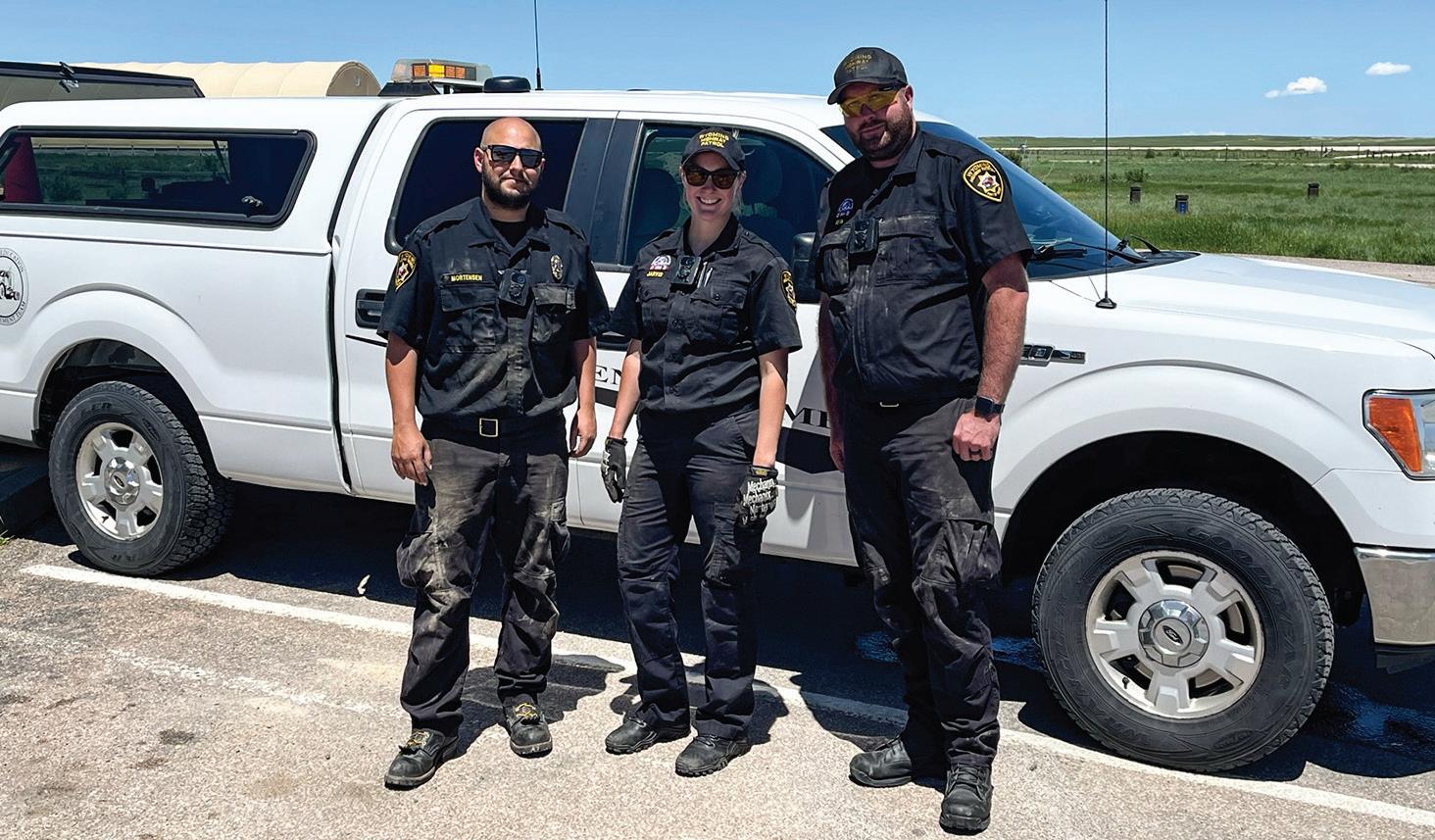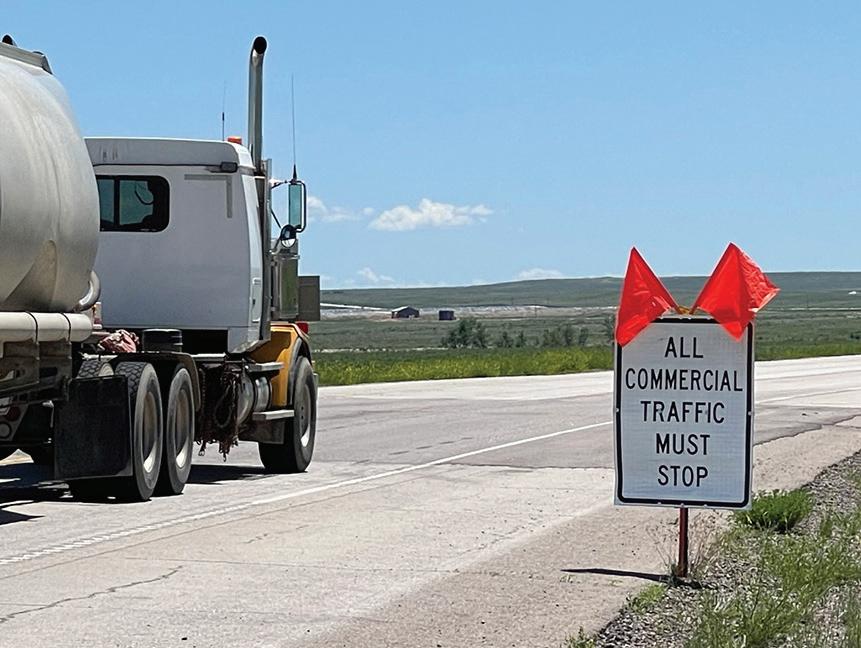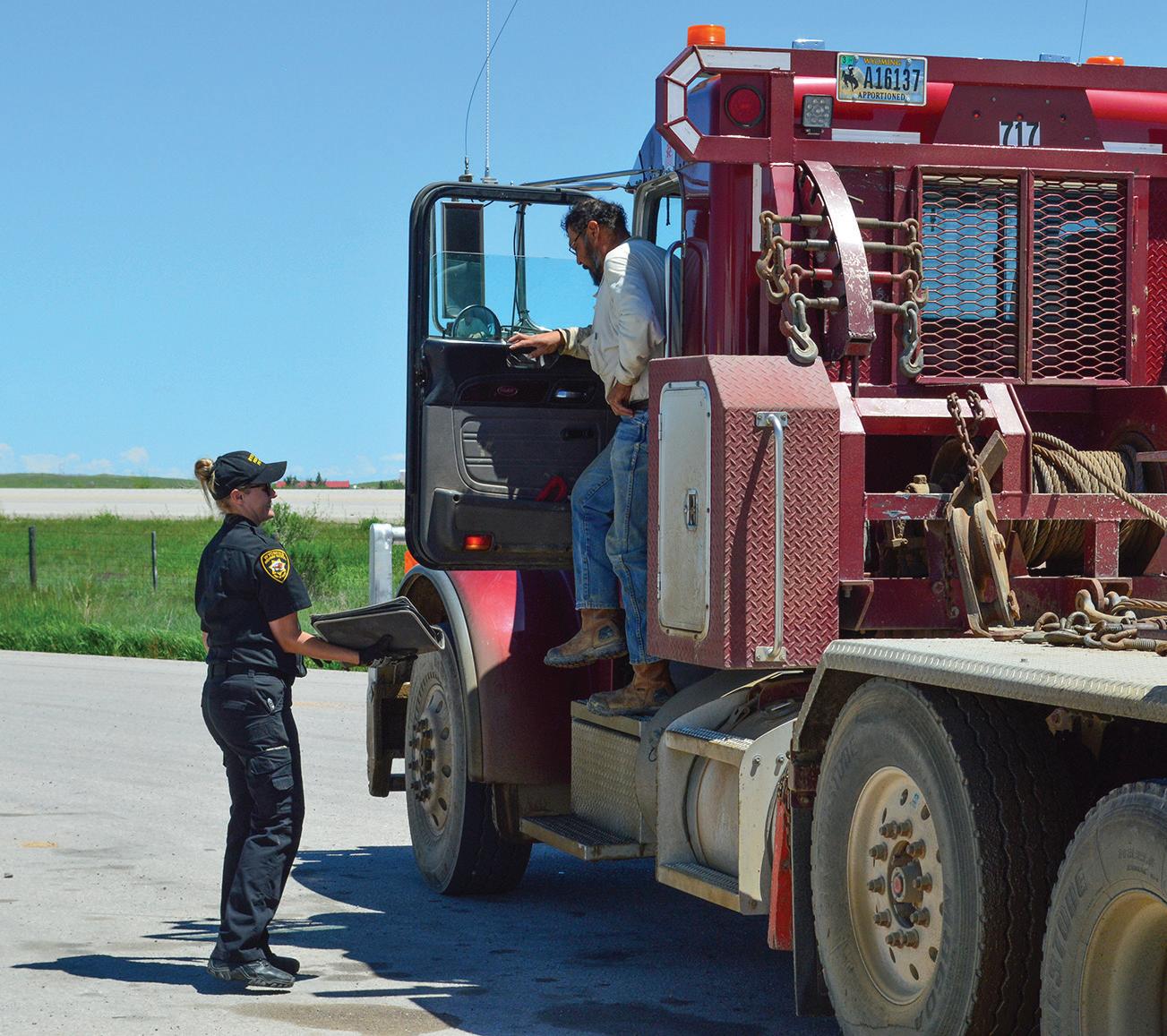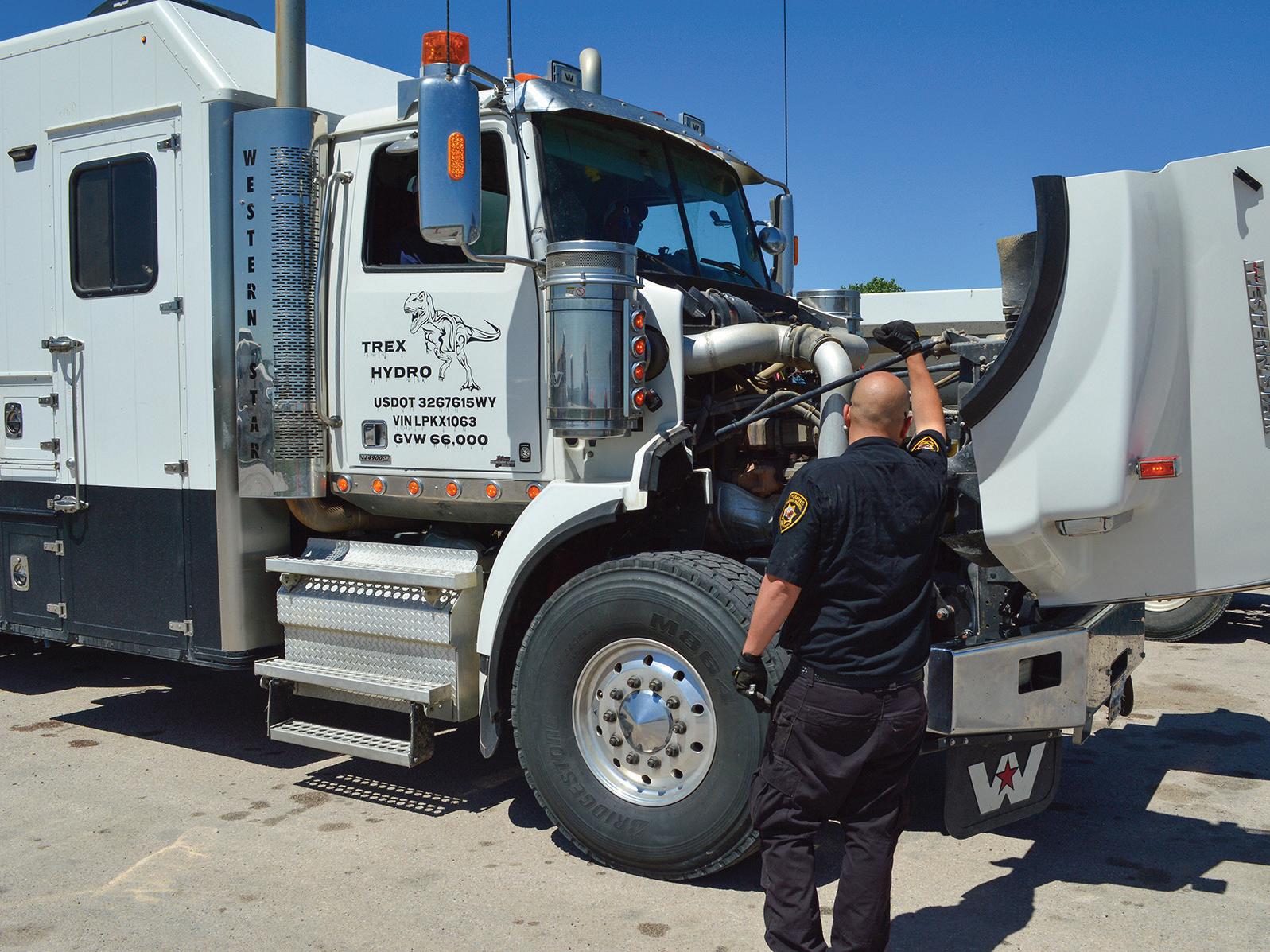
3 minute read
Commercial Carrier Division launches mobile inspection team
by WYDOT
Dedicated field unit increases safety and education efforts
By Mark Horan
The Wyoming Highway Patrol’s Commercial Carrier Section launched a full-time mobile inspection team at the beginning of the year and has seen positive results so far.
As part of the federally funded Motor Carrier Safety Assistance Program, the mobile team conducts commercial vehicle inspections on the side of the road, such as rest areas and truck stops. The unit performs the same levels of commercial vehicle inspections that are performed at Wyoming’s 14 ports of entry.

The mobile team can do everything that the ports do except issue permits.
“This is a new effort in our existing program to expand highway safety through more inspections and more education by having a dedicated field team,” said Commercial Carrier Lt. Dustin Ragon.
There are currently three full-time MCSA mobile inspectors: Officers Alanna Jarvis and Tyson Rein, stationed in the southern region, and Officer Davyd Mortensen stationed in the northern region.
As of June 15, the team has collectively performed 1,050 inspections. Beginning in October, each team member will be required to conduct 900 inspections over a 12-month period.
According to Jarvis, safety is the team’s top priority.
“We check on drivers to make sure they’re not fatigued and we also check on their trucks to make sure they’re allowed to be on the road and safe to be on the road,” Jarvis said. “It’s about driver protection, our protection and the public’s protection.”
In their inspections, the MCSA inspectors scrutinize driver hours of service, registration paperwork, tire conditions, truck maintenance and damage, brake performance, weight, cargo securement and more.
Jarvis estimated that at least half of the trucks or drivers that she and her team inspects on a daily basis have violations requiring correction before they’re allowed back on the road.
In some cases, the team has found contraband in the vehicle such as alcohol or drugs. Alcohol is strictly prohibited in commercial carriers along with any use of drugs or narcotics. While some drugs may be legal at a state level, federal regulations prohibit CDL holders from using or possessing them.
“I have unfortunately caught many of them with alcohol in coolers or drugs in their cab and their backpack. And we stopped them and put them out of service for that,” Jarvis said.
Occasionally the unit has had to stop trucks on the side of the road and discover that the drivers don’t have a permit or permis- sion. In these situations the mobile unit will often communicate back to the ports to see if the driver bypassed an inspection.
On a 10-hour shift, about eight hours are nothing but inspections. This helps take some of the workload off the ports, particularly the smaller ports or those which are short staffed.
In nice weather, the group averages around 10 to 12 inspections a day. That number drops down to around five in winter conditions.
Jarvis acknowledged that their job can be difficult in various types of extreme weather. Nevertheless, they manage to get the job done year-round.
“There’s no stopping us,” she said. “We’re doing them in the snow. We’re doing them in the high winds, we’re doing them in the rain, and the blazing heat. We’re out here doing inspections throughout the year.”
The educational component is another top priority for the MCSA team, who aim to help drivers instead of punishing them.
“Education is a little bit better, because sometimes drivers just don’t know that there’s a problem and it’s our job to help them and let them know there are things they need to fix,” Jarvis said.
“Now if we see something that’s crucial, we will write the citation,” she added. “But for the most part, it’s all education versus citation.”
The inspectors do not make arrests, but will call a trooper to come out to assist if necessary.
Although the MCSA officers spend most of their time traveling and conducting inspections, there’s also a public outreach component to their job.


“We’re here to help our community,” Jarvis said, pointing out that her group takes a lot of calls from people who are concerned about what trucks are doing. For example, someone might report a truck that’s leaking cargo such as sand or grain.

Sometimes a member of the public will call in if they have reason to think that a particular trucking company shouldn’t be operating on the roadway. In those cases the mobile team can go and check into that particular company to see if the concerns are legitimate.
If requested, the MCSA team members also put on safety presentations or CDL classes to community colleges or private trucking companies in order to bridge the gap between WYDOT and the trucking companies.
All in all, the group tries to focus on creating positive interactions with everyone they come across.
When drivers initially have to pull off on the inspection site, “they kind of cringe” Jarvis said. But by the time the end of the inspection is done, a lot of them are laughing and happy.
“We are making good impressions on them, and they’re starting to appreciate us a lot more.”










